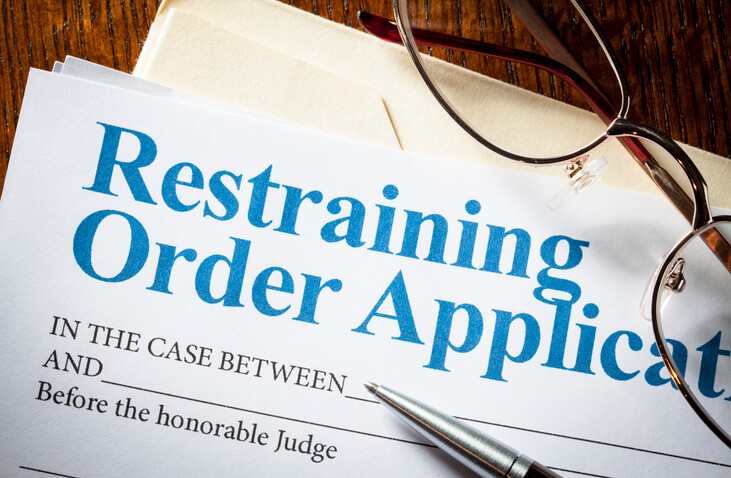Domestic violence is a serious problem. Protecting yourself and securing your safety is essential. One way to protect yourself is to petition the court for a protective order to restrain the offender from further acts of domestic violence. Experienced North Carolina family law attorneys can help you petition the court for protective orders and restraining orders. They can also help you to take additional legal action to protect your best interests in the future.
How Do I Get a Protective Order for Domestic Violence in North Carolina?
The courts can enter a domestic violence protective order upon petition from the victim. If the petitioner or their child is in immediate and serious danger, or fear of immediate and serious danger, the court can enter an ex parte order without requiring a full hearing. The abuser does not need to be notified of an ex-parte hearing or be present at the hearing, which helps protect the victim. Additionally, ex parte hearings can be held the same day to ensure an order is issued.
Emergency restraining orders are usually in effect for up to ten days. The purpose is to protect the victim until a formal hearing is held. The abuser is notified of the hearing and may attend the hearing. At the hearing, your attorney presents evidence that the abuser has committed acts of domestic violence. The court may then enter a protective order for up to one year. You can even apply to extend the protective order at the end of the first year, for up to ten years to ensure continued safety and security.
What Does a Protective Order Include in North Carolina?
The North Carolina domestic violence statute lists numerous types of relief for a domestic violence protective order. A judge may include one or more of the following in a protective order:
- Grant the victim possession of the household or residence and direct the other party from entering the home
- Require the abuser to provide the victim and/or their children with suitable alternative housing
- Award temporary custody and visitation
- Evict the party from the household or residence
- Award attorneys’ fees
- Order possession of personal property, including care, control, and custody of any animal or pet owned by either party or minor children
- Order a party to refrain from harassing, threatening, following, abusing, or otherwise interring with the other party
- Prohibit a party from abuse or cruel treatment of an animal kept, possessed, or owned as a pet by a party or minor children
- Award child support and/or alimony
- Require a party to complete an abuser treatment program
- Include additional prohibitions to protect a party or minor child
- Direct a party to refrain from specific acts of domestic violence
The abuser may also be required to surrender firearms to the sheriff, and the order may prohibit the abuser from purchasing firearms while the order is in effect. Judges may grant additional terms necessary to protect the victim and their minor children.
Schedule a Consultation With Our North Carolina Family Law Attorneys
The law provides ways for victims of domestic violence to seek protection from the courts. Your safety is your first priority. We want to help you protect yourself. Contact our law firm to schedule a case evaluation with our experienced North Carolina family law attorneys.
